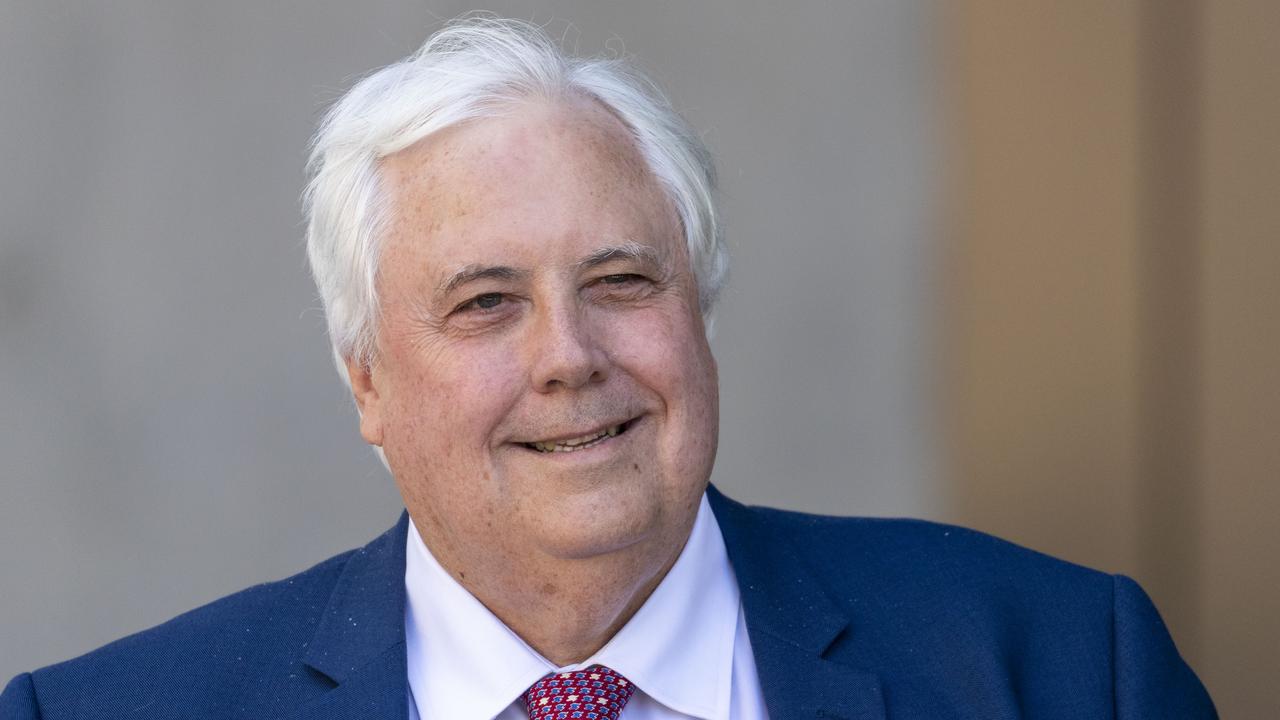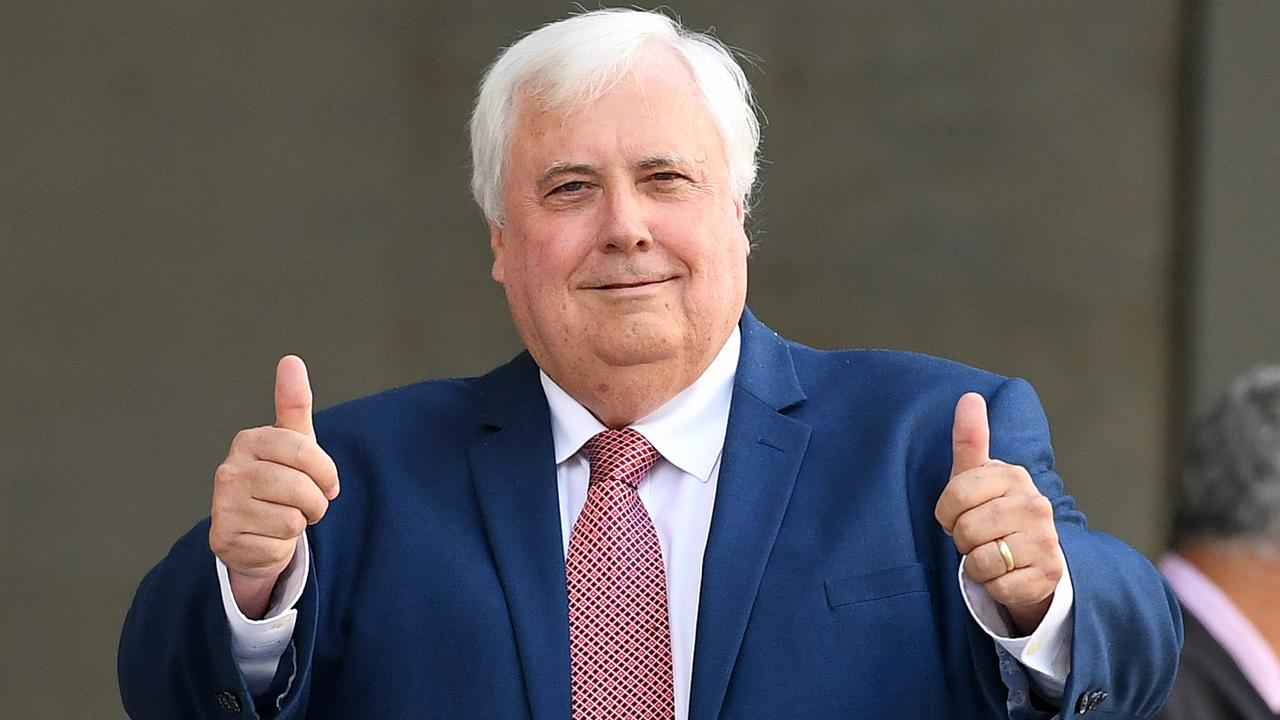Clive Palmer’s post-lunch nickel refinery rescue leaves bad taste
How Clive Palmer plotted the rescue of his nickel refinery with ally Domenic Martino at a swish Italian restaurant.

With his cash-strapped nickel refinery on his mind, Clive Palmer drove his black Mercedes coupe from his Sovereign Island mansion to flashy Gold Coast Italian restaurant Ioesco on Sunday to talk tactics.
Following in a rental Hyundai was the colourful and controversial moustachioed businessman Domenic Martino, the Palmer ally and former Deloitte chief executive forced to quit the firm in 2003 over his directorship of failed telco NewTel.
Both men clutched graphs plotting the month-by-month woes of the volatile world nickel price and spent a couple of hours in sombre discussion over lunch.
Less than 24 hours later, Palmer, flanked by nephew Clive Mensink, marched into voluntary administrator FTI Consulting’s Brisbane office and dropped a bombshell: a rescue plan backed by $23 million in funding from an anonymous financier.
After nearly 550 workers lost their jobs at the refinery last night and fears grew about whether the north Queensland plant would reopen, The Weekend Australian can reveal the desperate wrangling behind the collapse of Palmer’s shambolic rescue plan.
Palmer had been confident when he dropped his bombshell on Monday morning. The federal MP for Fairfax announced he’d sacked his Queensland Nickel Pty Ltd — under the administration of FTI Consulting since January — as manager of his Townsville nickel refinery, and replaced it with another of his companies, Queensland Nickel Sales Pty Ltd, with Mensink as his sole director.
FTI had been just hours from shutting the refinery down into “care and maintenance” mode, and starting the staged sacking of the 550 remaining workers amid diabolical cashflow and fears on maintenance and workers’ safety.
Palmer boasted to stunned administrators that he had found $23m in conditional funding from an unnamed Sydney financier — secured against his own personal assets and the mouldering refinery — and would be offering jobs to each of the workers by Thursday night. It was a surprise. Administrators had been asking him for cash for weeks.
Sources close to the refinery have confirmed to The Weekend Australian that Palmer has been talking to Martino for some time. They think it unlikely that Martino’s pockets are deep enough for him to have provided the cash himself, but suspect his bulging contact book may have at least helped Palmer secure the funding.
Of course, Palmer may have simply been seeking guidance from Martino, who for years has served as a well-paid director on the boards of several companies in his empire, including Perth’s Australasian Resources and Brisbane-based Gladstone Pacific Nickel.
Publicly, Palmer skited that he had “saved the Yabulu refinery for a second time”. Behind the scenes, advisers were urging caution, informing Palmer of the need to secure dozens of crucial government permits, negotiate new contracts with angry suppliers already owed money, and buy ore from New Caledonia.
The plan quickly fell apart.
A source close to the negotiations was scathing of the lack of forethought: “There was no planning. I don’t think they had any ducks in a row.”
Essential government licences were applied for haphazardly, almost as an afterthought. QNS did not even contact major suppliers, such as rail group Aurizon, which is owed nearly $20m by Queensland Nickel and transports the refinery’s product to and from Townsville’s port.
Palmer’s finance became shakier. The $23m was conditional on QNS having the authority to operate the plant. Three shiploads of nickel ore en route to Townsville had to be redirected last night, after it became clear QNS could not buy the material.
Finally, FTI was forced to retrench nearly all of the plant’s 550 workers late yesterday, after QNS did not offer refinery staff the promised jobs. Mensink — the sole director of the refinery when Queensland Nickel sacked 237 workers in January and collapsed into administration, and sole director of QNS — blamed the absence of government approvals.
Yet when a senior bureaucrat rang Mensink yesterday to inform him that the environmental authority had been approved for QNS, Mensink was bemused.
“I can’t do anything about that, I don’t have any staff,” he said.
For his part, Martino says he doesn’t “know anything about” the Yabulu situation. Asked why he had discussed nickel prices with Palmer at lunch on Sunday, Martino said, “I might have talked about a number of things”, before later saying, “I don’t remember anything we spoke about”.
“I’m not involved,” he said, insisting that his role as director of several Palmer companies was separate to the refinery saga.
Mr Palmer did not return calls from The Weekend Australian.





